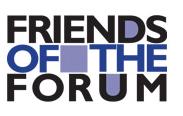| 2014 |
Kłobuck
Kazimierz Kosiński School Complex No 3


| 2014 |
Honorable Mention at 2014 School of Dialogue Gala
They are young, idealistic, self-confident and full of energy. They want to change the world and act, not grind over the useless facts in stuffy classrooms. Or otherwise. They have seen it all, they are puzzled by nothing, with a flick of their finger they can display everything on a screen, so how to get them involved? How to teach them in an interesting way, involving and practicing useful skills? Kłobuck workshops clearly demonstrate that the School of Dialogue can be an answer to many of these questions.
A camera crew from the school roamed the town streets. They asked people on the street whether they know what mikveh, yarmulka or bar mitzvah was, how to celebrate the Shabbat and where the Kłobuck ghetto was. The results were unimpressive, the students concluded, This is when we became sure that our participation in this project is justified.
The School of Dialogue project is implemented by the students themselves after a series of workshops with the Forum for Dialogue educators. Nothing is imposed, there are no marks or comments.
Educators have a support role, they inspire, but the students themselves come up with ideas and ways to implement them. “The project led to sharing effects of our work with other students of our school and with the local community”, commented one of the students. “We learned a lot about Jews, their history, religion, ways of life, and about our Kłobuck Jewish neighbours: where they lived, what they did, how they lived and died… literally and also figuratively, vanishing from human memory”, said the high school students after workshops.
Jews lived in Kłobuck since the 19th century. They were mostly minor merchants and craftsmen. There was a Jewish school, a synagogue, a mikveh and a Jewish cemetery in town. There was also a room for visiting Jews. Before the World War II Jews constituted about 27% of total residents of Kłobuck. In the very beginning of the war German troops occupied the town, which was included into the Third Reich. In 1941 a ghetto was created there. In June the ghetto inhabitants were carted off to the Auschwitz-Birkenau extermination camp. Only about a 100 people survived the war.
During their preparation for the project the students met Andrzej Brzózka, a Kłobuck history enthusiast. They talked about Polish/Jewish relations, anti-Semitism and multiculturalism. The project brought the students to divergent sources – archives and libraries, houses of oldest Kłobuck citizens, schools, churches and offices. They approached their task in a professional manner – a logo was prepared, posters designed, multimedia presentation ready. They also documented their work in audio and video formats.
The big day was December 4. A school hall was being prepared since the very morning for the guests coming for the Jewish Culture Day. Food was plentiful: hummus, onion soup, herrings and rugelach. After hearing a story about local Jews and their double identity the guests followed their footsteps. The town market square was the place where Jews congregated, Wały Street where the ghetto was, a spot where the synagogue and the mikveh used to be. The tour finished at the Jewish cemetery – the only surviving monument to Jewish history of the town, where a mini-lecture on symbols on Jewish headstones was delivered.
Everybody returned to the school, where the exhibition “Remember the Forgotten” was unveiled. Some real jewels were found there – lists of students from pre-war schools, and student art pieces about Kłobuck Jews. A Jewish dessert crowned the day. While enjoying Jewish snacks, the guests were presented with recipes (in Polish and Yiddish), followed by a lesson of Jewish dances. At the end, the representatives of school groups received the presentation and the recorded program about Jews. For those high school students who could not attend, a PDF was prepared with detailed info about the tour.
Almost 200 people participated in the event: students of junior high schools and primary schools, residents of Kłobuck, a historian Andrzej Brzózka and the deputy county head, Maciej Biernacki. “The workshops motivated our group to learn the history of Kłobuck, which is very interesting. I think that most of us knew nothing about it up to then”, says Agnieszka, a student from Kłobuck. “Walking around the town I can close my eyes and imagine how it once was – a synagogue, Jewish houses, districts”, adds another participant.

School:
Kazimierz Kosiński School Complex No 3
Honorable Mention:
Honorable Mention at 2014 School of Dialogue Gala
Students:
students from different grades
Teacher:
Jadwiga Mrożek-Myszkowska
Expert:
Andrzej Brzózka
Educators:
Małgorzata Kruszewska, Maria Pawlak
In appreciation to the Conference on Jewish Material Claims Against Germany (Claims Conference) for supporting this educational program. Through recovering the assets of the victims of the Holocaust, the Claims Conference enables organizations around the world to provide education about the Shoah and to preserve the memory of those who perished.

In appreciation to Friends of the Forum for supporting the School of Dialogue educational program.
